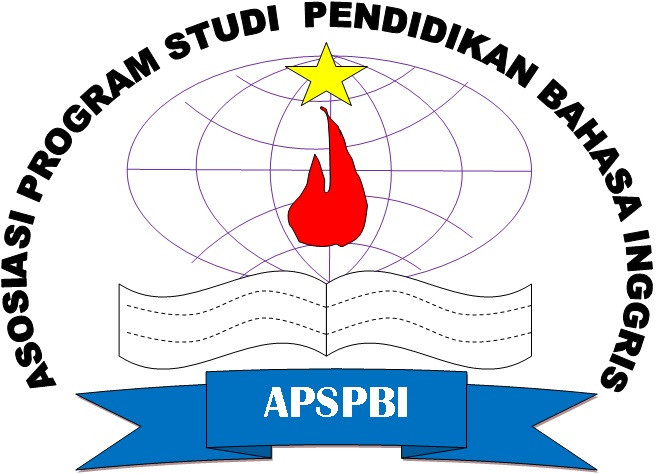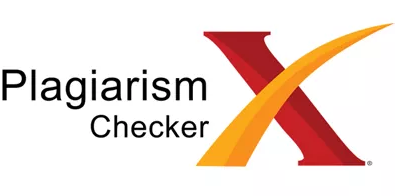Perceived Barriers to Online Collaborative Learning by Prospective EFL Teachers
Abstract
This research aims to unveil the types of online collaborative learning activities undertaken by prospective EFL teachers in one of Indonesian universities located in West Nusa Tenggara Province, along with the barriers to such learning environment and their sources. This research employed mixed-method research with explanatory sequential design and to collect the data, a survey with 41-item questionnaire developed based on six constructs derived from previous research entailing motivation, commitment, social interaction, technical skills, time and support and technical problems distributed to 53 respondents and a semi-structured interview administered to 10 selected interviewees to elicit deeper information on the perceived barriers. Data analysis executed using descriptive statistics and thematic analysis suggests that most of the respondents utilized learning management system and WhatsApp group to carry out collaborative learning tasks. They also reported that the mostly undertaken collaborative activities entail group projects, group discussion, group presentation, and knowledge sharing. In addition, while generally the respondents select neutral responses across all the construct, there is a constant higher refusal than agreement rates to the barriers in all constructs except for the technical problems. This further implies that the barriers on the online collaborative learning depends on several factors and all these constructs are mutually interconnected.
Keywords
Full Text:
PDFReferences
Aljaraideh, Y., & Al Bataineh, K. (2019). Jordanian Students’ Barriers of Utilizing Online Learning: A Survey Study. International Education Studies, 12(5), 99–108.
Anderson, T. (2008). Towards a theory of online learning (pp 44-74). The Theory and Practise of Online Learning./Athabasca University.
Braun, V., & Clarke, V. (2006). Using thematic analysis in psychology. Qualitative Research in Psychology, 3(2), 77–101.
Capdeferro, N., & Romero, M. (2012). Are online learners frustrated with collaborative learning experiences? International Review of Research in Open and Distributed Learning, 13(2), 26–44.
Chatterjee, R., & Correia, A.-P. (2020). Online students’ attitudes toward collaborative learning and sense of community. American Journal of Distance Education, 34(1), 53–68.
Chiong, R., & Jovanovic, J. (2012). Collaborative learning in online study groups: An evolutionary game theory perspective. Journal of Information Technology Education: Research, 11(1), 81–101.
Cullen, R., Kullman, J., & Wild, C. (2013). Online collaborative learning on an ESL teacher education programme. ELT Journal, 67(4), 425–434.
Jieun, L., & Osman, G. (2021). Students’ Experiences and Perceptions of Online Collaborative Learning in Higher Education of Korea and the UAE. Turkish Online Journal of Distance Education, 22(1), 1–18.
Magen-Nagar, N., & Shonfeld, M. (2018). The impact of an online collaborative learning program on students’ attitude towards technology. Interactive Learning Environments, 26(5), 621–637.
Margaliot, A., Gorev, D., & Vaisman, T. (2018). How student teachers describe the online collaborative learning experience and evaluate its contribution to their learning and their future work as teachers. Journal of Digital Learning in Teacher Education, 34(2), 88–102.
Michinov, N., Brunot, S., Le Bohec, O., Juhel, J., & Delaval, M. (2011). Procrastination, participation, and performance in online learning environments. Computers & Education, 56(1), 243–252.
Muilenburg, L. Y., & Berge, Z. L. (2005). Student barriers to online learning: A factor analytic study. Distance Education, 26(1), 29–48.
Muuro, M. E., Wagacha, W. P., Kihoro, J., & Oboko, R. (2014). Students’ perceived challenges in an online collaborative learning environment: A case of higher learning institutions in Nairobi, Kenya. International Review of Research in Open and Distributed Learning, 15(6), 132–161.
Ng, E. M. W. (2012). Online Collaborative Learning. In N. M. Seel (Ed.), Encyclopedia of the Sciences of Learning (pp. 2497–2499). Springer US. https://doi.org/10.1007/978-1-4419-1428-6_459
Rahman, K. (2020). Learning Amid Crisis: EFL Students’ Perception on Online Learning during Covid-19 Outbreak. ETERNAL (English, Teaching, Learning, and Research Journal), 6(2), 179–194.
Razali, S. N., Shahbodin, F., Hussin, H., & Bakar, N. (2015). Online collaborative learning elements to propose an online project based collaborative learning model. Jurnal Teknologi, 77(23).
Roberts, T., & McInnerney, J. (2007). Seven Problems of Online Group Learning (and Their Solutions). Educational Technology & Society, 10, 257–268.
Song, L., Singleton, E. S., Hill, J. R., & Koh, M. H. (2004). Improving online learning: Student perceptions of useful and challenging characteristics. The Internet and Higher Education, 7(1), 59–70.
Tanaka, M. (2017). Examining EFL vocabulary learning motivation in a demotivating learning environment. System, 65, 130–138.
DOI: https://doi.org/10.31002/metathesis.v5i2.4256
Refbacks
- There are currently no refbacks.

This work is licensed under a Creative Commons Attribution-ShareAlike 4.0 International License.
Metathesis: Journal of English Language, Literature, and Teaching is published by English Education Department, Faculty of Teacher Training and Education, Universitas Tidar, Magelang, Indonesia in collaboration with Asosiasi Program Studi Pendidikan Bahasa Inggris Se-Indonesia (APSPBI)
ISSN: 2580-2712 (print) and 2580-2720 (online)
Jalan Kapten Suparman 39 Magelang, Jawa Tengah, Indonesia 56116
Phone (0293) 364113 Fax (0293) 362438













